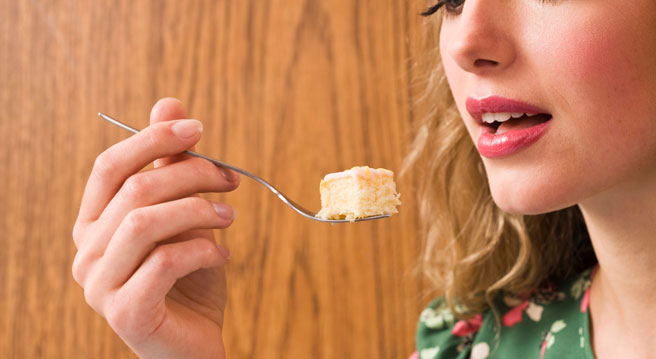How to curb emotional eating
Discover the unconscious agenda behind your eating, says Sarah Neish

Identify your food memories
Cravings are usually sparked by cherished memories. ‘Think back to a childhood birthday party,’ says Sandy Newbigging, co-author of Life-changing Weight Loss. ‘All the attention was on you, and you felt great as everyone sang “Happy Birthday” and you were given a beautiful cake.’ In that moment, it’s likely you began to associate happiness with cake. A recent survey revealed our favourite comfort treats to be bangers and mash, fish and chips, beans on toast and chocolate cake. Which memories do you associate with each of these?
Beware the party trap
‘We’re social animals and gain rapport by copying those around us,’ says Newbigging. ‘Friends in a bar often pause and drink at the same time, and we do the same with food. If people around you are eating, you’ll keep eating too, even if you’re full.’ Before beginning a meal, really look at your food and absorb its smell. This will help you to eat consciously.
What does food protect you from?
Eating often provides us with an illusion of safety. ‘Being overweight means we can avoid situations we fear,’ says clinical psychologist Dr Denise Lamothe. ‘For example, “If I’m heavier, men won’t approach me, so I can’t be rejected. If I’m fat, people won’t take me seriously and I won’t have to risk being wrong.”’ What might you be trying to protect yourself from? Are there other more nurturing ways to address these worries?
Curb robotic eating
Overeating can become automatic, meaning food is consumed with little thought or notice. What are your patterns of automatic eating? Write down any times or situations when you always reach for food, and plan to change one of these. For example, if you automatically nibble while preparing dinner, sip a large glass of water with a slice of lemon, instead.
Photograph: Jupiter Images








